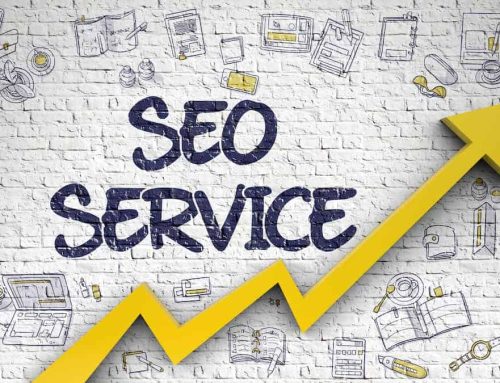It is difficult to explain how search engines exactly work to a tee. Its mechanics change constantly, plus there is neither a fixed solution nor guidebook available to master it. SEO experts then adapt through research, testing and experience. But sometimes, people’s claims or SEO myths can send our digital goals astray. Do not get misled easily! Here are six popular misconceptions about SEO and tips to debunk them.
1. Social Media Channels Improve Rankings
Does having millions of followers on Twitter, Facebook, Instagram, and other similar platforms affect search engine rankings? The answer is not directly. That’s because Google is not into social signals, and these channels cannot pass link juice to a page either.
However, don’t scrap them from your digital marketing campaign plan just yet. Because while these cannot grant you the #1 spot, they can give you brand awareness and engagement. Social media work wonders in attracting new customers, too. And as you get social shares through these channels, your page gains significant traffic in return.
TIP: Now that you know that this is an SEO myth, make sure not to resort to buying followers for rankings. This resource will neither share your content nor buy your products to help your site.
What you can do is to combine social media with SEO know-how and top-notch content creation. Build a reliable and likeable brand by enhancing your social media presence.
2. Doing Google Ads Improve SEO Rankings
You probably heard this statement from pay-per-click (PPC) agencies. They say that Google and other search engines favour websites that apply paid advertising. Is this true? The answer is no. That’s because Google denied giving higher ranking scores for this. Moreover, paid ads and SEO are channels that work independently.
But similar to social media channels, Google Ads have indirect benefits for your site, especially if it’s new. For instance, it can help build awareness. Websites ranking in both paid and organic search also appear more trustworthy to users. Combining these effects can boost your SEO and also increase click-through rate and leads.
TIP: Use paid advertising to spot high-converting keywords, which you can use to enhance your organic listing. Doing so can maximise your optimisation efforts, then boost your site visits and conversion rates in the process.

3. The Longer the Content, the Better
Here’s another common SEO myth I’m sure you’ve heard of somewhere. So, does long-form content help boost your SEO performance? The answer is not always.
Sure, some readers find in-depth articles valuable and shareable. But article length is not the only factor that search engines consider. Competitor analysis tools will even show you that a longer piece of content with thousands of words does not dominate the SERPs every time.
Why? Because Google is more into quality than quantity. And if you put yourself in the reader’s shoes, you’d rather have a concise article that answers your search query directly, right? It’s not always that you can spare 10 minutes or so of reading time either. You won’t be pleasing search engines if you cannot make your visitors happy.
TIP: Publish a mixture of short and long-form content. Use 500-word articles to catch reader attention. Then add 1000-word posts to showcase your authority and keep visitors engaged. Incorporate good on-page SEO ranking factors, like keywords and links, into your in-depth content as well. If you want to find out more whether grammar and spelling mistakes affect your SEO, check out this article.
4. Google Will Find Your Fresh Content and Index It
Search engine bots or crawlers like new, high-quality content. But is it necessary to publish fresh articles to rank? The answer is no. Moreover, the effect on rankings is not instant since it will take days for bots to crawl your newly published content.
If you’ve been maintaining your website for some time, chances are you have old articles that need optimisation. So, spend time checking, assessing and updating them according to recent Google metrics. These can help you rank more cost-efficiently.
TIP: Apply ways to improve outdated content to dispel this SEO myth. If you’re using WordPress, consider installing the XML sitemap plugin as well. This way, you automatically create and send a new sitemap to search engines, so they can index and crawl your article sooner.

5. You Need to Blog Every Day to Rank Well
Here’s another content-related SEO myth that probably stemmed from Google’s natural liking for fresh articles. People perhaps misunderstood its 2011 algorithm update on this. Since then, website owners have been publishing and updating blog posts daily. So, should you follow suit? Please don’t.
You don’t need to keep producing new articles to keep your rankings up. And this tactic does not outshine competitors either. Search engines are also more intuitive now. They can figure out searcher intent and match them with the right content or link, including old ones.
TIP: Instead of spending resources on publishing as many articles as possible, use them for creating original, user-intent-based content. Also, put value to other SEO must-dos and techniques, like structuring headers, inserting internal links, optimising images and adding meta descriptions.
6. More Backlinks Can Boost Rankings
We know that backlinks are amongst the crucial ranking signals as they add to your site’s credibility. So, does that mean we must pepper our articles with as many backlinks as possible? Probably not. This SEO tactic may have worked before, but with a more discerning ranking algorithm in place, this is nothing more than an SEO myth.
Like content, always prioritise quality over quantity. Adding many low-traffic links to your articles, for example, may send the wrong signals to search engines. Worse, spammy links might only give you headaches instead of high rankings. Be more selective. A single relevant backlink has more weight than dozens of links.
TIP: High-quality backlinks may be essential to SEO, but it is only one of many other SEO strategies that you should use. For instance, incorporating inbound links and checking broken links are vital to your overall SEO performance, too.
Conclusion
Taking on a holistic approach can help you avoid these digital hearsays. Instead of falling victim to a potential misconception about SEO, make individual foolproof strategies work together for your ultimate goal. There is no shortcut or magic bullet when it comes to SEO, after all.
So, err on the side of caution, and do your research and evaluate results. Find the right SEO ingredients to ensure your recipe for success!






